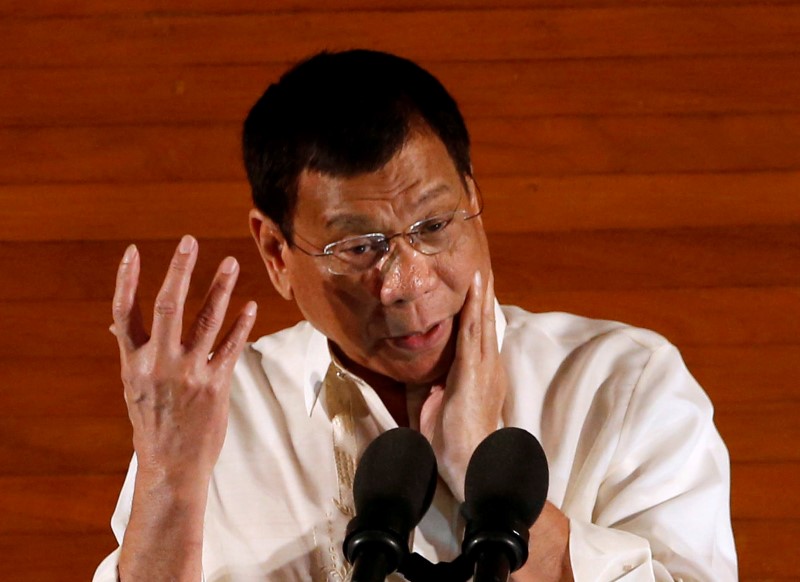MANILA (Reuters) - The newly convened Philippine Congress heard a proposal on Tuesday to re-impose the death penalty for "heinous crimes", giving priority to President Rodrigo Duterte's push for capital punishment in its first legislative session.
The death penalty bill was received the same day Duterte took office on June 30, and it cites illicit sales and use of drugs as the root cause of "the most perverse and atrocious crimes".
Introduced by two lawmakers, including a house speaker allied with Duterte, the bill cites the need for a war on crime and argues that existing laws were not a deterrent and had "emasculated" the criminal justice system.
The death penalty was repealed in 2006 following pressure from church groups.
The bill comes as Duterte's war on crime is in full swing, with at least 200 people killed in the past month, according to police, who say many of the deaths are the work of vigilantes.
Other estimates of the body count are far higher and human rights groups are outraged.
Duterte's vow to wipe out crime and drugs by the end of the year resonated among millions of Filipinos when he campaigned for election on threats to kill drug dealers who refused to surrender and dump their bodies in Manila Bay.

He will not get everything his way, however, with the bill calling for lethal injection as a method of administering the punishment. Duterte had called for death by hanging, which he described graphically during speeches.